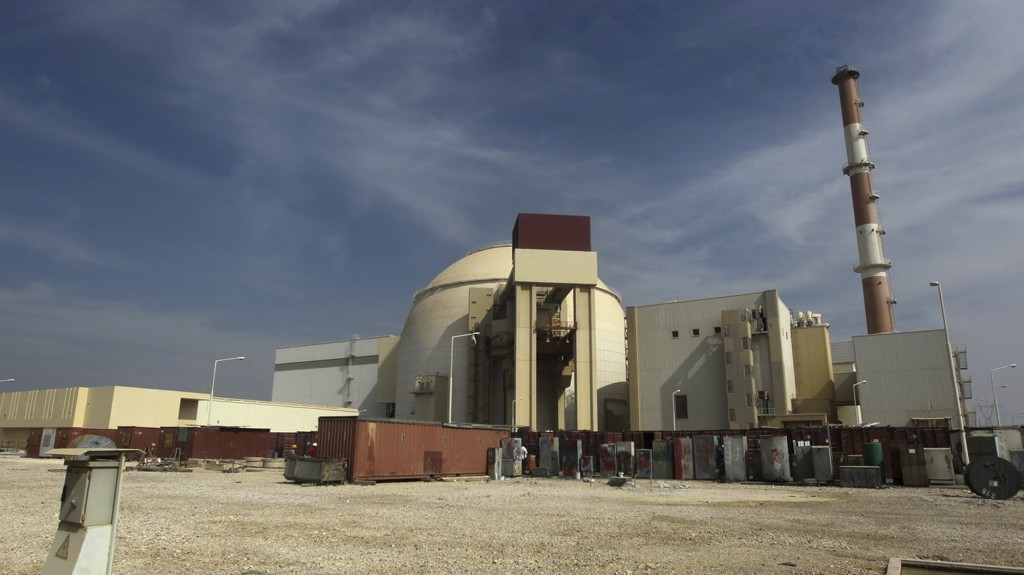Iranian President Hasan Rouhani has insisted that Iran’s missile program is for defensive purposes.
"We don’t strengthen our military power to attack other countries. Rather, our defense power is for deterrent purposes or aimed at defending the country in certain conditions,” Rouhani said, addressing a cabinet meeting in Tehran on March 7, according to Iran’s Mehr news agency.
"Our weapons are meant for peace, strengthening stability and security, and for discouraging others from invading our country. Therefore, no one should be concerned about Iran's weapons and missiles or the development of Iran's defense power," he added.
Despite international pressure on Iran to curb its missile program, the country continues to develop its missile and overall defense capabilities. In June 2017, the Iranian parliament announced that an additional $550 million would be allocated for expanding the country's missile activities.
Brigadier General Amir-Ali Hajizadeh, commander of the aerospace division of the Islamic Revolution Guards Corps (IRGC) said on Wednesday, “Despite the hostilities and the measures taken by the global arrogance [the U.S.] and enemies, those defending the development of the defense [sphere] in the country has increased,” adding, “our missile products have increased three-fold compared to the past.”
In December, the UN Secretary-General Antonio Guterres said that Iran’s actions may be defying a UN call to halt ballistic missile development, even as Iran complies with Joint Comprehensive Plan of Action (JCPOA), better known as the nuclear deal, between the five permanent members of the UN Security Council (the U.S., France, the U.K., Russia and China) plus Germany, which was signed in July 2015. According to the deal, Iran would curb its nuclear program in exchange for the lifting of nuclear-related sanctions and access to frozen capital.
While Iran has enjoyed economic benefits from the JCPOA, notably by being able to resume oil exports, it is still subjected to American sanctions in other areas. At the same time, major European financial institutions and other banks have been cautious about engaging in transactions with Iran. Iran frequently warns European countries that Tehran will withdraw from the deal if there are no economic gains and major banks continue to stay away.
French Foreign Minister Jean-Yves Le Drian, who visited Tehran On March 5, said there was "still a lot of work to do" on Iran's missile program, after meeting with top Iranian officials, including Rouhani and Foreign Minister Mohammad Javad Zarif.
Last year Iran and the French energy giant Total signed a $5 billion gas exploration deal, which was the biggest in Iran since the 2015 nuclear deal went into effect. It showed French companies were willing to stand up to pressure from the U.S. for doing business with Iran.
U.S. President Donald Trump has been a harsh critic of the nuclear deal. In January he set a 120-day deadline for U.S. lawmakers and European allies to "fix" the deal or face an American withdrawal from it, which could kill it altogether. The Trump administration’s main concern with the deal is that it does not address Iran’s missile program nor what the U.S. and western powers believe to be aggressive actions in the region, particularly in Syria.
After the meeting with Le Drian, Zarif posted on his Twitter account that, "US & Europeans should stop pouring hundreds of billions of dollars of weapons into our region instead of questioning Iran’s missiles. Not restricted by UNSC, but necessary to deter repeat of our people’s suffering when Saddam – with western support – showered us with missiles.”
In February, Iran disclosed plans to develop nuclear reactors for ships. The JCPOA does not explicitly prohibit Tehran from developing nuclear-powered ships or submarines, unless they use weapons-grade uranium. Nuclear power is particularly suitable for submarines and other ships that need to be at undersea for long periods without refueling.







 Russian peacekeeping forces, deployed in the Karabakh (Garabagh) region of Azerbaijan since 2020, have commenced their withdrawal from the area.
Russian peacekeeping forces, deployed in the Karabakh (Garabagh) region of Azerbaijan since 2020, have commenced their withdrawal from the area.
 The number of evacuees from flooded areas in Kazakhstan has reached 97,852 people, including about 32,856 children since March 27.
The number of evacuees from flooded areas in Kazakhstan has reached 97,852 people, including about 32,856 children since March 27.
 The Islamic holy month of fasting, Ramadan comes to an end this week with the celebration of a joyous festival called Eid (meaning “festival” in Ar...
The Islamic holy month of fasting, Ramadan comes to an end this week with the celebration of a joyous festival called Eid (meaning “festival” in Ar...
 Azerbaijan officially unveiled the logo for the upcoming 29th session of the Conference of the Parties to the United Nations Framework Convention o...
Azerbaijan officially unveiled the logo for the upcoming 29th session of the Conference of the Parties to the United Nations Framework Convention o...



